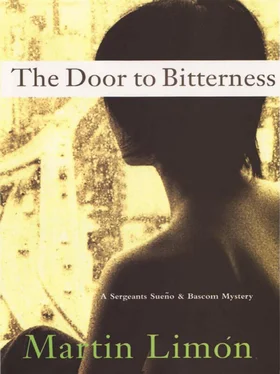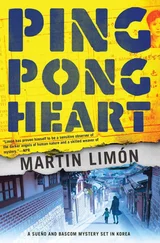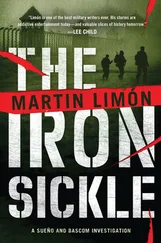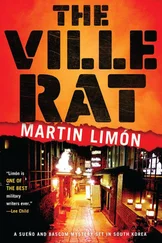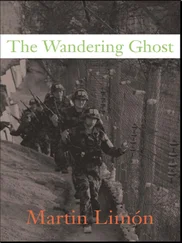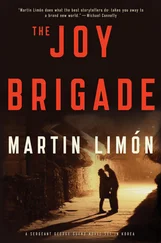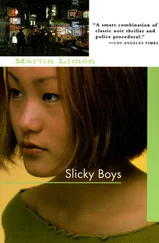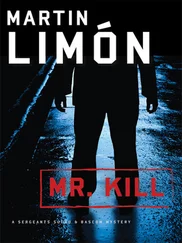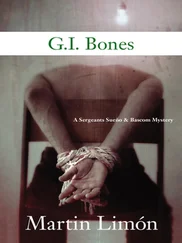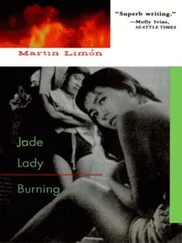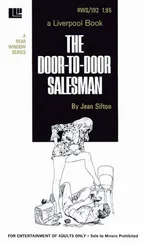Martin Limon - The Door to Bitterness
Здесь есть возможность читать онлайн «Martin Limon - The Door to Bitterness» весь текст электронной книги совершенно бесплатно (целиком полную версию без сокращений). В некоторых случаях можно слушать аудио, скачать через торрент в формате fb2 и присутствует краткое содержание. Жанр: Полицейский детектив, на английском языке. Описание произведения, (предисловие) а так же отзывы посетителей доступны на портале библиотеки ЛибКат.
- Название:The Door to Bitterness
- Автор:
- Жанр:
- Год:неизвестен
- ISBN:нет данных
- Рейтинг книги:4 / 5. Голосов: 1
-
Избранное:Добавить в избранное
- Отзывы:
-
Ваша оценка:
- 80
- 1
- 2
- 3
- 4
- 5
The Door to Bitterness: краткое содержание, описание и аннотация
Предлагаем к чтению аннотацию, описание, краткое содержание или предисловие (зависит от того, что написал сам автор книги «The Door to Bitterness»). Если вы не нашли необходимую информацию о книге — напишите в комментариях, мы постараемся отыскать её.
The Door to Bitterness — читать онлайн бесплатно полную книгу (весь текст) целиком
Ниже представлен текст книги, разбитый по страницам. Система сохранения места последней прочитанной страницы, позволяет с удобством читать онлайн бесплатно книгу «The Door to Bitterness», без необходимости каждый раз заново искать на чём Вы остановились. Поставьте закладку, и сможете в любой момент перейти на страницу, на которой закончили чтение.
Интервал:
Закладка:
The Korean National Police arrived only moments after Mr. Bok’s telephone call.
A quick search of the surrounding area turned up nothing. It was thought that the thieves must’ve had a vehicle waiting nearby. So far, the KNPs had discovered no witnesses who had seen the two men enter the casino or, more importantly, leave. But they were still canvassing the neighborhood and had high hopes that they would convince some courageous citizen to talk to them soon.
Koreans, by the nature of their experience during most of the Twentieth Century, are reluctant to become involved with the police. But they will open up, Lieutenant Won told us, when offered an incentive. The weathered old cop slugged his fist into his leather-clad palm and grinned a crooked-toothed grin.
Before the claws belonging to the mother of Han Ok-hi could rip into my flesh, I threw up my arms. But by then it was too late. She was on me, swinging at my chest, my face, shoving into me with all her strength. I staggered backward and almost tumbled onto one of the patients, but at the last second the technician braced me and kept me from falling. By now, Ernie had stepped past me, and he and the husband and Doctor Oh surrounded the writhing woman and held her. Her face blazed an angry red and she screamed invective at me, most of which I couldn’t understand, and then she was spitting and trying to push forward again. The three men held firm. The mother of Han Ok-hi strained against them, and then, as if all her massive strength had left her, she stopped. Her mouth shut and she stared at me, confused. She gazed around the green glow of the Critical Care Unit, as if she had just awoken from a dream.
Her face fell and her palms shot up to cover her open mouth. She crumpled to the ground, crying and screaming and moaning again. Calling out: “Ok-hi, Ok-hi, Ok-hi-ah.”
The doctor, the husband, and the technician lifted her back to her feet. Someone rolled in a wheel chair and, after arranging her properly, the husband pushed the mother of Han Ok-hi out of the Critical Care Unit.
Ernie came to stand by me. Doctor Oh talked to me some more but I don’t remember what was said. I don’t know if I turned down care or promised to see a doctor or anything at all. I don’t even remember leaving the hospital.
But we did leave.
And the next thing I knew, I was breathing salt air.
I wasn’t surprised that Lieutenant Won hadn’t allowed Ernie or me to speak to the owner of the Olympos Hotel and Casino. The Japanese and Hong Kong high rollers brought millions of dollars into the casino every year. With money like that, power had to be close by. The casino owner was probably more influential in the City of Inchon than the mayor. And in Korea, one iron rule I’d learned: important people don’t talk to American GIs. Even when those GIs are conducting a murder investigation. Especially when they’re conducting a murder investigation.
And without subpoena power, I couldn’t do a thing about it. Not without the consent of the Korean National Police, and that wasn’t likely. When the owner entered the cashier cage with his henchmen, Lieutenant Won, the tough old cop, had been terrified. Even Ernie had been a little intimidated. I could tell by the way he bristled.
Still, I’m a cop. And like any cop in the middle of a murder investigation, I had questions: Did the casino owner keep money in his office? I hadn’t seen a safe but maybe there was one hidden somewhere. Is that why the thief went back there? Did the crook have inside information concerning the whereabouts of a safe? And why had Han Ok-hi been in the office? What was she doing? Serving tea? If so, who to? And why had she taken off her clothes? Where was the casino owner while the thief was wandering around his office? Where were his bodyguards? Had the casino owner seen the thief? Did he think he could identify him and pull him out of a line-up?
I had other questions that maybe had nothing to do with the crime: Who tore up the photograph on the small shrine in the alcove? Who picked up and returned the pieces to their proper place on the pedestal? Who relit the sticks of incense? Who were those two people in the photograph? What did ancestors have to do with all this?
There were too many questions, all swirling madly through my mind. And while I struggled to sort them out, all I could see was the small body of Han Ok-hi, lying unmoving and helpless beneath white sheets. How I wished that she would sit up and tell me, and then her mother, that she was all right.
After leaving the Huang Hei Medical Center, Ernie and I drove to the Inchon Headquarters of the Korean National Police. I sat in the jeep for a few minutes, breathing deeply of the fresh salt air. Ernie waited patiently. When I felt I’d recovered, we went inside. Using the accounts of the casino employees, one of the police artists had already made sketches of the two thieves. After meeting with Lieutenant Won to discuss strategy, Ernie and I returned to the jeep and sat outside the red-brick headquarters building, staring at the sketches.
“Ugly fuckers,” Ernie said.
“Yeah,” I said, “but now I understand why everyone in the casino was so frightened when we walked in. These two guys look like us.”
“Naw, they don’t. It’s just because of the way they’re dressed. Coat and tie. And they’re wearing shades. And one of them’s Caucasian and a little shorter, and the other one is dark and a little taller. That’s the only similarity.”
Ernie didn’t want to see the resemblance but it was there. Still, he was right that if you took away the Western clothing and set them out on the street standing next to us, no one would mistake them for two stalwart enforcers of the law like Agents George Sueno and Ernie Bascom.
The City of Inchon rises from the sea up to the hills that comprise the downtown business district. From where we sat we could see the big cement block building of the Olympos Hotel and Casino, out to the Port of Inchon, and beyond to the rippling waters of the Huang Hei, as the Koreans call it- the Yellow Sea. The sun was low on the horizon.
I thought of Miss Han Ok-hi. Would she pull through? Would she one day be whole and healthy again? Or would she give up the ghost and allow her spirit to rise through this golden glow to join her ancestors?
Ernie broke the spell.
“The KNPs will be looking for more leads all night, talking to cab drivers, checking with the bus companies, seeing if they can locate witnesses and a getaway car.”
When a foreigner kills a Korean it makes headlines in the morning papers. The KNPs, although prime players in a highly controlled state, are not completely insensitive to public opinion. Pressure, and a lot of it, would be coming down from on high, and coming down soon. A GI-or someone who appears to be a GI-callously shot a fine young Korean woman. No politician could put up with that. And the sooner the KNPs arrested a suspect, the safer they would be.
I saw where Ernie was going. “So we have to go some place where the KNPs can’t.”
“The GI angle,” Ernie said. “That’s why Lieutenant Won let us examine the crime scene. He wants us to figure out who these guys are and where they’re stationed so he can collar them.”
“We’ll make the collar,” I said.
“Good,” Ernie agreed. “Let’s do that. So our first step is to think like these guys. If you had just robbed a casino, shot an innocent girl, and were now on the run with a bag full of money, where would you go?”
“To Seoul,” I said.
“Right. To hide amongst the multitudes. But think of how fast the KNPs arrived on the scene, and Lieutenant Won told us the roadblocks on the highways leaving Inchon were set up in a matter of minutes.”
“The thieves must’ve had a vehicle waiting.”
Читать дальшеИнтервал:
Закладка:
Похожие книги на «The Door to Bitterness»
Представляем Вашему вниманию похожие книги на «The Door to Bitterness» списком для выбора. Мы отобрали схожую по названию и смыслу литературу в надежде предоставить читателям больше вариантов отыскать новые, интересные, ещё непрочитанные произведения.
Обсуждение, отзывы о книге «The Door to Bitterness» и просто собственные мнения читателей. Оставьте ваши комментарии, напишите, что Вы думаете о произведении, его смысле или главных героях. Укажите что конкретно понравилось, а что нет, и почему Вы так считаете.
